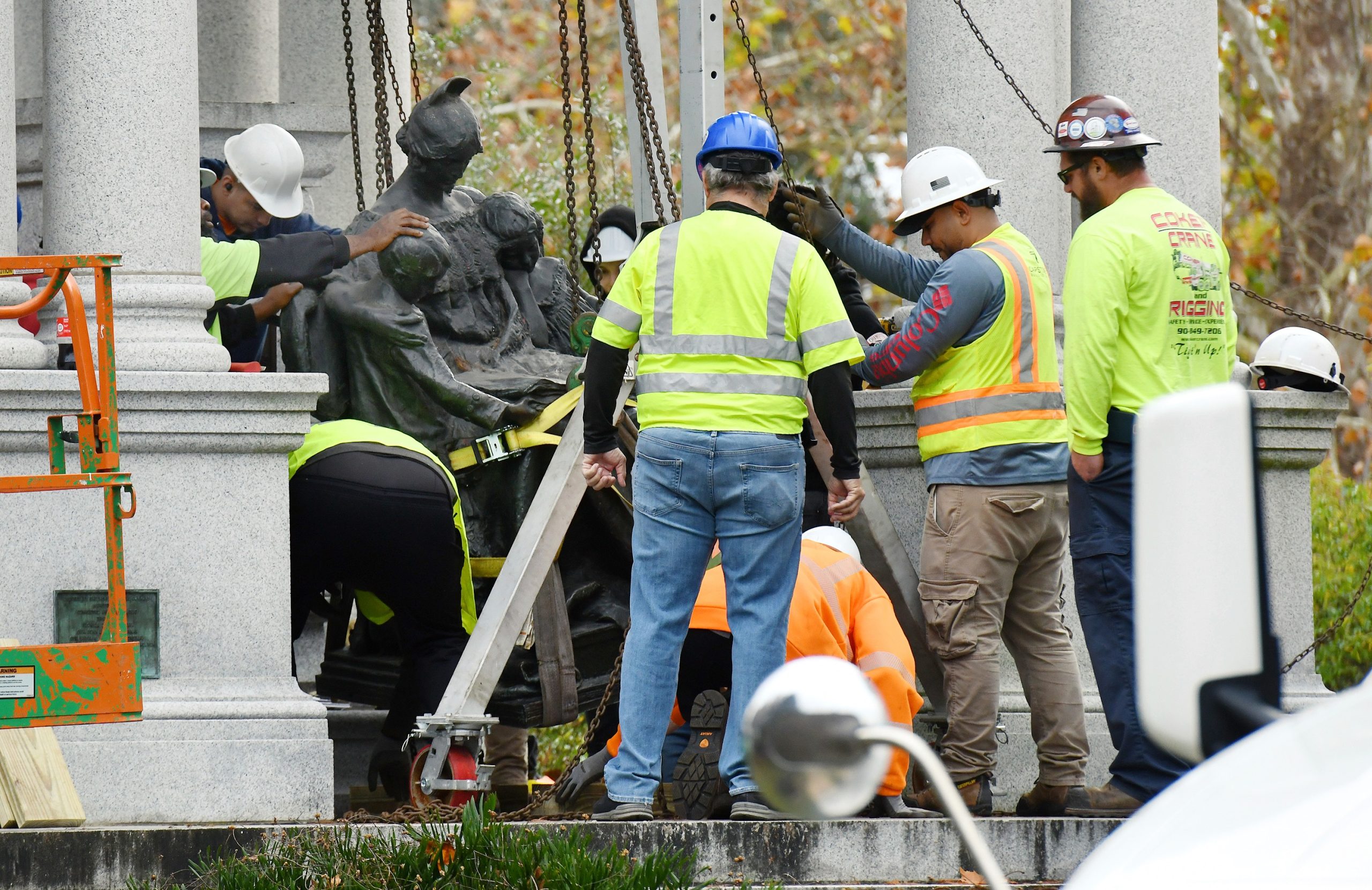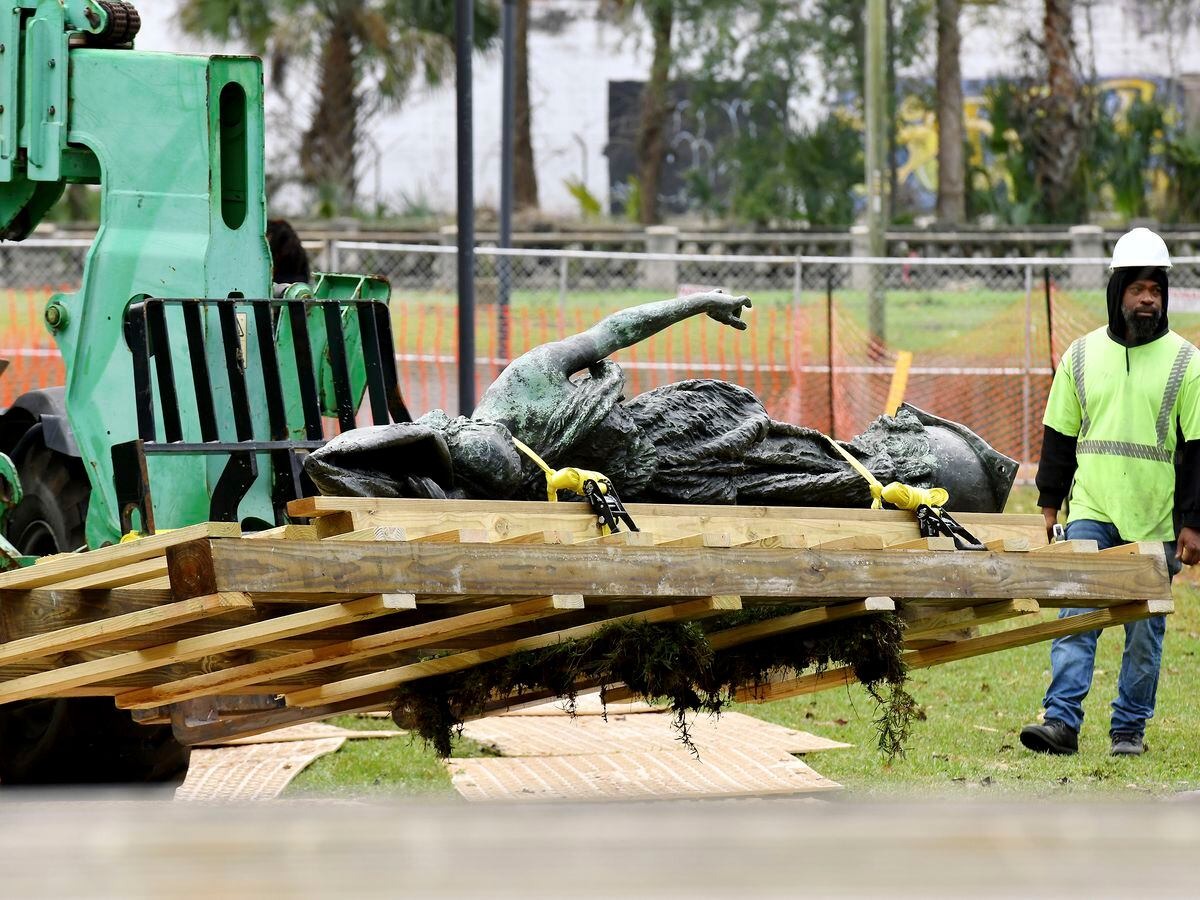In Tallahassee, Florida, the Republican-controlled Legislature is pushing forward bills aimed at preventing cities and counties from removing or relocating Confederate monuments. This move has ignited heated debates surrounding issues of history, racism, and white supremacy.
While previous attempts to pass similar bills in recent years have failed, the current effort seems to be gaining momentum as bills progress through both the House and Senate, causing a strong reaction from Democratic lawmakers who find the measures deeply offensive.
The renewed focus on this issue follows a contentious battle in Jacksonville, where the Democratic mayor sought to remove two bronze statues known as the “Women of the Southland,” featuring a woman in a robe carrying a Confederate flag.

Confederate Monuments (Credits: Tampa Bay Times)
Although these statues were installed in 1915, the recent push for removal has intensified discussions about the symbolism and historical significance of Confederate memorials.
The proposed legislation has sparked a particularly strong response from Black Democratic lawmakers, who express their deep opposition and offense.
State Representative Michele Rayner, a Black Democrat from St. Petersburg, condemns the bill, emphasizing its negative message not only to Black individuals in Florida but also to Black colleagues. Rayner highlights the recent racially motivated shooting in Jacksonville, pointing out the urgency of addressing racism and its consequences.
Republicans supporting the bill argue that it aims to preserve history for everyone and prevent a “purge” of monuments.
Florida Representative Dean Black, a Jacksonville Republican and sponsor of the House bill, contends that the legislation will help clear the air between people and prevent local governments from declaring “war” against historical monuments.
The bills, however, do not explicitly mention the Confederacy but are crafted to protect any memorial related to “any armed conflict since settlers from other countries came to what is now the United States.”
A controversial provision, initially allowing Governor Ron DeSantis to remove local officials violating the proposed state law, has been dropped from the House version but remains in the Senate bill. This provision intensifies concerns about potential executive overreach and interference in local decision-making.
Efforts to amend the legislation during House discussions were unsuccessful, as Republicans rejected attempts by Democrats to exclude Confederate monuments and those honoring slave owners from the bill’s protections.
The ongoing debate underscores the complex and divisive nature of addressing historical monuments, with competing narratives about preserving history and confronting the troubling aspects of the past.























